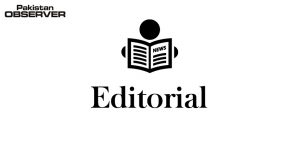AFTER threadbare discussion for the last two consecutive days on all aspects of the situation arising out of the spread of Coronavirus, the National Coordination Committee (NCC) has come out with a hybrid solution to save people both from the Covid-19 and vagaries of poverty and hunger. Sharing decisions of the highest forum with newsmen, Prime Minister Imran Khan announced the exemption of construction, chemical and export-oriented “low-risk” industries from the ongoing Coronavirus-related restrictions and an extension in the nationwide partial lockdown for another two weeks. He said though Pakistan recorded far less number of cases as compared to the global trend and local estimates, it would be unwise to lower guards against the highly contagious disease that is posing threat to the entire humanity. The strategy approved by the NCC is apparently satisfying in that it takes into account both sides of the crisis and the ‘balancing act’, the Prime Minister has referred to, has the support of the provinces as well, which augurs well, which would guarantee its successful implementation. Sindh previously had some reservations but now it too seems to be on board as to which industries should be allowed to resume activities and the change of mind comes in the wake of uncalled for threats hurled by some unscrupulous elements of the business community. The situation is tricky and has aptly been explained by Brad Adams, Asia Director of Human Rights Watch who said factory workers risk infection at work or hunger at home. Here comes the role and responsibility of factory and business management on the one side and workers and customers on the other side. Balancing act requires of them to have in place personal and site safety measures to effectively prevent spread of the highly contagious disease. As per decision of the NCC, which is also represented by the provinces, restrictions would remain in place for educational institutions, sports activities, cinemas, and other public places for the next two weeks, but construction sector and some other industries would perform their normal operations, hopefully with strict implementation of the SOPs devised for the purpose as there should not be any compromise on the safety of human lives. Though in the words of the Prime Minister there was ‘98% consensus’ at the NCC meeting about partial resumption of industrial and commercial activities but in a reconciliatory tone Imran Khan added that if any province still believed it was not immediately prepared to open industries, the Centre would not enforce its opinion, as provinces were free to take decisions on various affairs after the 18th Amendment. This tone and spirit would complement efforts aimed at ensuring better harmony and coordination among all stakeholders in tackling the challenge. The reconciliatory tone was also manifest from the remarks of the Prime Minister that in view of approaching Ramadan, Ulema would be invited for consultation on how worship could be done safely amid virus threat. The government has a flexible approach despite gravity of the situation but unfortunately Ulema have acted in haste in making an announcement to resume normal congregational and Friday prayers and Taraweeh. Mosques were already open but what the government and health experts wanted was placement of restriction on the number of worshippers and necessary precautionary measures aimed at prevention of the virus. No doubt, Ulema are undertaking to ensure such measures but what people witnessed during meeting of the senior religious figures, who sat close to one another, does not inspire much confidence about fulfilment of such pledges. Precautionary measures like proper distance between individuals and rows, removal of rugs (prayer mats), and use of sanitizers can surely help contain the threat but practical implementation is doubtful in view of our overall social milieu. All stakeholders including religious and business community should realize that the spread of the Coronavirus is a nonpolitical issue and needs to be treated as such. The limited restrictions are meant for safety of citizens and similar course of action has also been adopted by other countries including Islamic world and therefore precautionary measures should be adhered to strictly for our own safety and that of others. Unbridled relaxation at this stage could prove to be catastrophic and it is responsibility of law-enforcing agencies to ensure that safety aspect is not ignored by any segment of the society.










